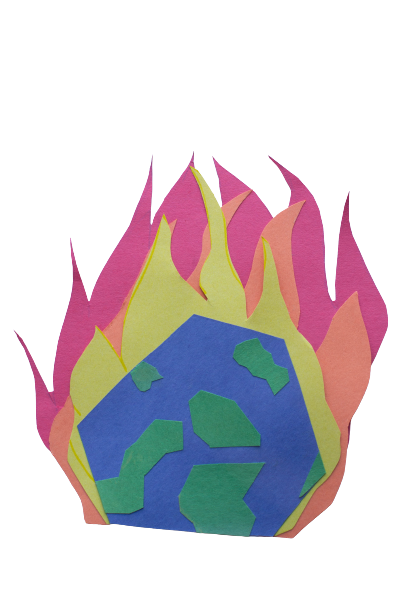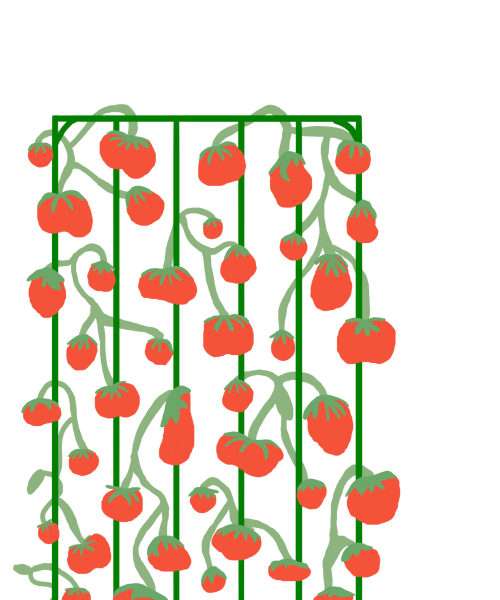Global Warming is a Global Warning
Many people harbor this fantasy: waking up on Christmas morning, and drawing back the curtains to see the ground coated in a thick, white blanket of snow. But, can you remember the last time you actually experienced this? It is a known fact that weather fluctuates, but winter seasons around the world are permanently changing. The climate change crisis is changing winters as we know them, due to increased greenhouse gas emissions in the atmosphere. The word “climate” alludes to the average weather over time which has been relatively stable until recently. Across the world, temperatures are rising at a rapid rate. This means that, although winters can still be frigidly cold, white winters are becoming a rarity in Missouri and surrounding states, as the planet is heating up at an alarming rate.
Climate change has made itself obvious during warmer months, as it brings record-breaking hurricanes and devastating wildfires across the country, but in many regions, winters are actually warming up more rapidly than any other season. Analysis done by Climate Central, an independent research organization, states that winters in the United States have warmed by an average of 3 degrees Fahrenheit over the past half-century. While this may not seem drastic, it is expected to continue to rise with no end in sight. With these warmer temperatures comes more precipitation, because as the planet warms, more water is evaporated. In colder states, this added precipitation is likely to come in the form of heavy snowstorms, but in warmer midwestern states like Missouri, this is likely to cause freezing rain and heavy downpours.
To some, warmer winters seem favorable. Higher temperatures may melt ice from roads, cut heating and electricity costs, and make heavy coats obsolete, but warmer winters come with much more serious costs. Changing winter temperatures can interfere with crop growth, as many fruit trees must go through a “chilling period” during the winter, during which cold temperatures are a necessity. Rising temperatures also allow disease-carrying insects, such as mosquitos, to creep further into the year. Disease transmission from mosquitoes and other insects need a warm climate. According to research done by Climate Central, cities across the US are averaging an additional 52 days that allow disease transmission, and the land area most suitable for disease-carrying mosquitoes is projected to increase from 5% to 50% by 2100, which puts many areas at risk of an outbreak.
It is evident that climate change is affecting different areas of the United States in unique ways, but if Missourians plan on staying in the Midwest, they can expect to watch snowfall decline as the seasons become hotter and wetter. This will continue to affect farming, fishing, winter recreation, plant growth, as well as many other things that we may take for granted.
Many nations around the world are fighting against climate change, but change can come from individuals, as well. The most important way that individuals can combat climate change is to become educated and spread awareness. Many people may be left in the dark, not knowing or believing the effects of climate change, so something as simple as talking to others and voicing concerns could help protect the planet. Saving electricity in your household whenever possible, and reducing both water and waste in your household are other, more hands-on, ways that you can reduce your carbon footprint. Although global warming cannot be reversed, it can be slowed and even stopped within the next century, but this can only happen if all nations, and the people within those nations, can cooperate and slow carbon emissions, which is why it is important to know the impact that one can have.

Hi! I'm Lana, and this is my first year in ECHO. I am a senior staff writer, and I also participate in crochet club and spanish club. My hobbies are reading,...

Hey guys! This is my fourth year writing and editing for ECHO. This year I’m the sports editor and photo coordinator. I’m President of Eco Club, and...








